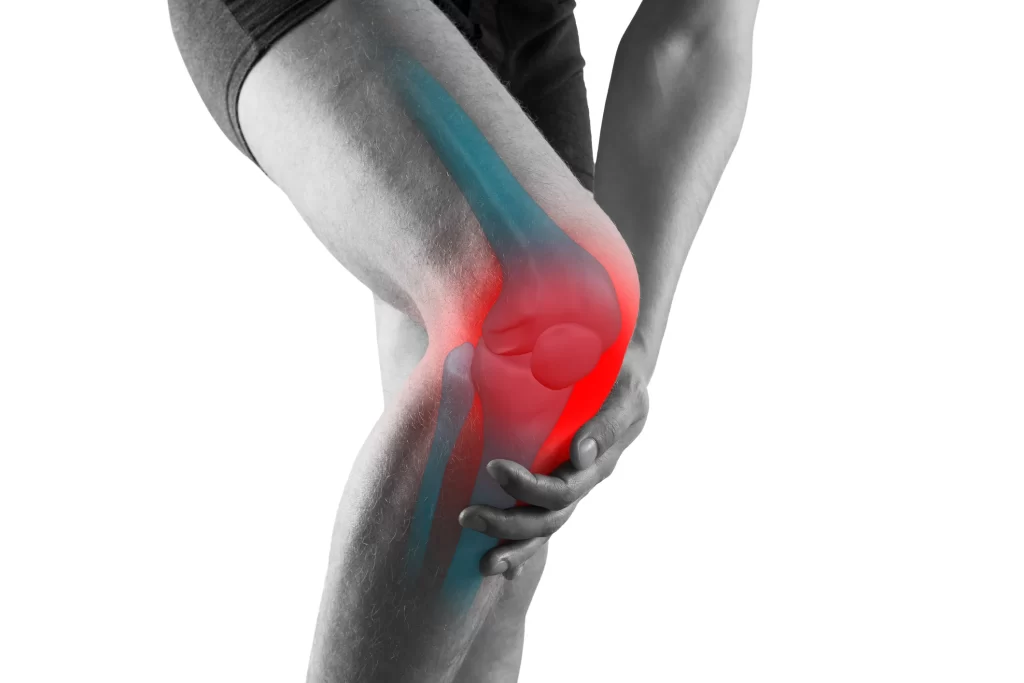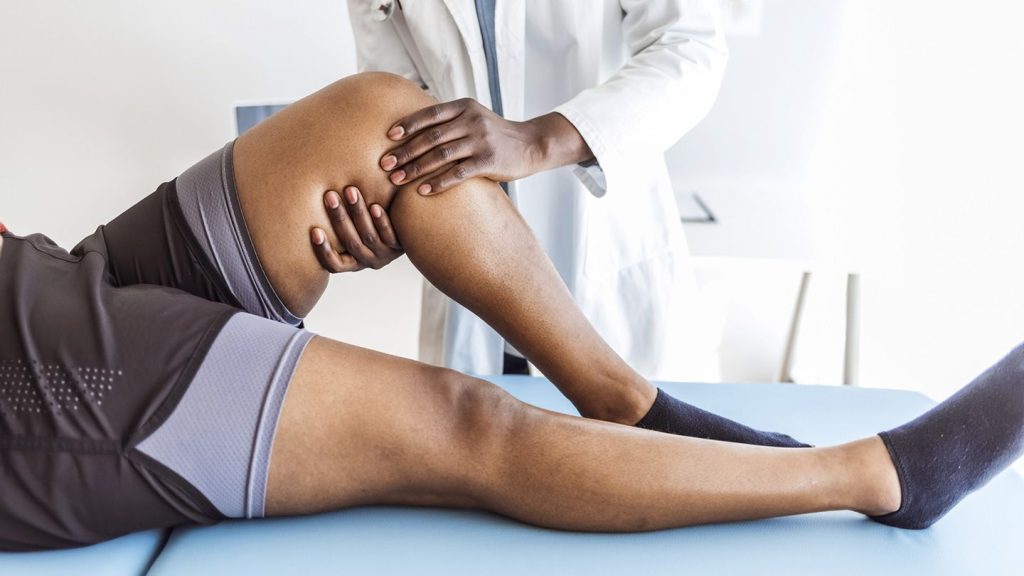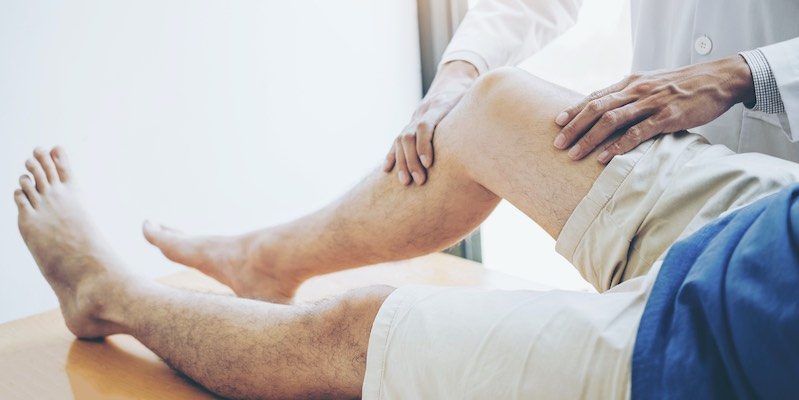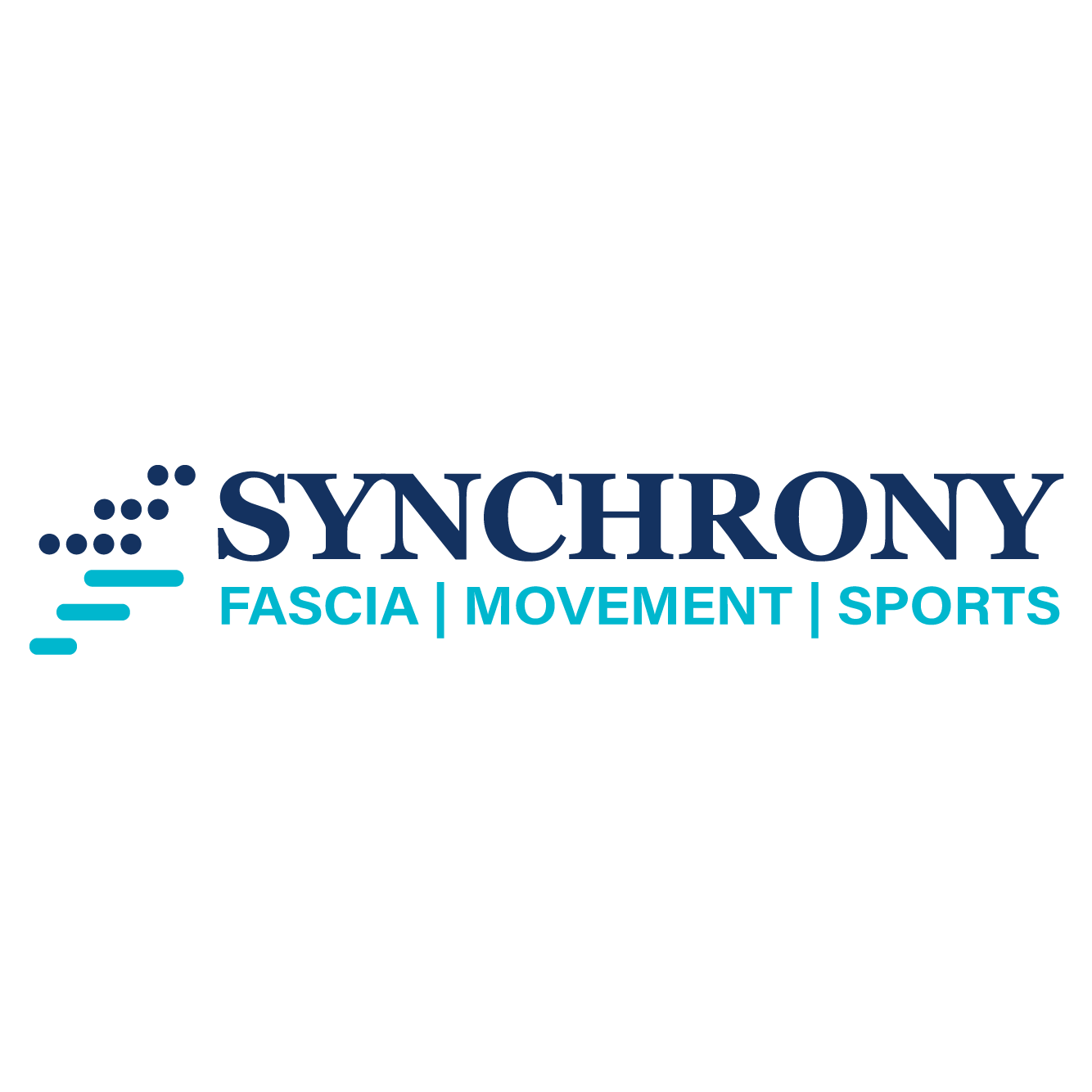Book an Appointment Today
Don’t let knee issues hold you back. Contact us today to schedule an appointment and take the first step towards a pain-free life. At asynchrony we’re here to support you on your journey to optimal knee health.
Not All ACL Tears Require Surgery
It’s a common misconception that all ACL tears need surgical treatment. In reality, the need for surgery depends on several factors, including:
- Grade and type of the tear
- Stability of the knee
- Functional demands and goals of the individual
Patients with ACL injuries are generally classified into three categories:
- Copers – those who can function well without surgery
- Non-Copers – those who may require surgery to regain knee stability
- Adapters – those who can adjust their activity level to manage without surgery
Your Personalized Path to Recovery
During your initial assessment, we’ll evaluate your knee function, injury characteristics, and lifestyle demands to determine your classification. If you fall into the Coper or Adapter categories—and your injury responds well to conservative management—there’s a strong possibility that you can successfully rehabilitate without surgery.


ACL Cross Bracing: A New Non-Surgical Option for ACL Tears
Explore a promising alternative to ACL surgery.
ACL Cross Bracing is an innovative, non-surgical treatment for acute Anterior Cruciate Ligament (ACL) tears. While still in the early stages of clinical research, early results are encouraging:
- Up to 90% of selected complete ACL tears show signs of healing on MRI within 3 months post-injury
- Up to 79% of patients may return to their pre-injury level of sport within 12 months
This treatment may be suitable for certain acute ACL injuries, as determined by MRI. It offers a potential pathway to natural healing without the need for surgery.
Is ACL Cross Bracing Right for You?
If you’ve recently injured your ACL and want to explore all your options—including this innovative non-surgical approach—contact us for a thorough assessment
Our Accelerated ACL Rehabilitation Approach:
- Comprehensive Evaluation: Our experienced team conducts a thorough evaluation, including physical exams, sports testing and imaging tests, to assess the extent of the ACL injury and plan personalized treatment.
- Individualized Rehabilitation: Whether you’re recovering from ACL surgery or taking a non-surgical route, our tailored rehabilitation program is designed around you. We focus on strengthening your knee, enhancing flexibility, and restoring full range of motion—step by step.
Our evidence-based, 5-stage progressive rehab approach ensures that every session is customized to match your progress, helping you recover safely and effectively
- Return to Sports Testing: Only 55% of Athletes Return to Sport After an ACL Injury—We’re Changing That.
Re-injury and failure to return to sport often come down to incomplete rehab and rushed clearance. At our clinic, we don’t leave recovery to chance.
- Return to Sports Testing: Only 55% of Athletes Return to Sport After an ACL Injury—We’re Changing That.
We believe in precision rehabilitation, backed by continuous evaluation. Every athlete in our program undergoes regular testing including:
- Strength assessments using digital dynamometers
- Balance, coordination, and functional movement tests
- Jump analysis and video breakdown using high-performance software
We don’t guess—we measure, track, and adapt. Our goal is not just to get you back to sport, but to have you return stronger and more resilient than ever.
- Patient-Centric Care: From pre-surgery consultations to post-operative follow-ups, and during rehabilitation we prioritize clear communication, education, and support to ensure your comfort and confidence throughout the treatment journey.

FAQs
An ACL can sometimes heal without surgery if the tear is partial and activities are low-impact, but a full ACL tear usually does not heal on its own. Many people can manage mild ACL injuries with rest, bracing, and focused physical therapy, but active individuals or athletes often need surgery for full stability and to prevent further knee damage. The best approach depends on the severity of the tear and lifestyle needs
To prevent ACL tears, Exercise throughout the year, strengthening your hamstrings, quadriceps, hips, and core, employing appropriate landing and cutting techniques, avoiding activity when extremely tired, and maintaining your knees over your feet when playing sports are all important ways to prevent ACL tears. To further prevent knee injuries, warm up, stretch, move safely, and improve your agility and balance.
The main cause of ACL tears is often sudden changes in direction, twisting movements, or awkward landings during sports or physical activities. It usually happens when the knee is forced to rotate or bend unnaturally, putting too much stress on the ligament. Factors like weak muscles, poor technique, and fatigue can increase the risk, making the ACL more vulnerable to injury. Most ACL tears occur in high-impact sports that involve running, jumping, and quick stops.
If an ACL is not repaired, the knee can become unstable, making it more likely to give out during everyday activities or sports. This instability can lead to further damage in the knee, like tears in the meniscus or cartilage, causing more pain and swelling over time. Without repair, there’s also a greater risk of developing arthritis in the knee earlier than expected. So, leaving an ACL tear untreated can affect your long-term knee health and make it harder to move comfortably.
ACL injuries don’t always fully heal on their own, especially if the tear is complete. The ACL doesn’t have a great blood supply, which makes it hard for the ligament to repair itself fully. In some cases of partial tears, with proper rest, physical therapy, and strengthening, you can regain a lot of function and stability. But for complete tears, surgery is often needed to restore full strength and prevent future knee problems. So, while healing is possible, the approach depends on the injury’s severity and how active you want to be.
Yes, ACL injuries can frequently be managed through physiotherapy, particularly when the tear is partial or surgery is not required immediately. Physiotherapy aids in strengthening the muscles surrounding the knee, enhancing balance and flexibility, and restoring mobility. It can alleviate pain and swelling while promoting knee stability, enabling many individuals to resume their regular activities without the need for surgery. However, in cases of complete tears or when the knee remains unstable, physiotherapy alone may not suffice, and surgery might be warranted. In summary, physiotherapy is essential for both recovery and the prevention of future injuries.
To help prevent your ACL from tearing again, focus on strengthening the muscles around your knee, especially your quadriceps, hamstrings, and hips. Make sure you stretch regularly and work on your balance and stability with targeted exercises. Always use proper form when running, jumping, or changing direction, and don’t rush your return to sports or intense activities—give your body enough time to heal and rebuild strength after an injury. Wearing a knee brace during high-risk activities or as recommended by your physiotherapist can also add extra protection. Above all, listen to your body and don’t push through pain—stay consistent with your rehab and keep your muscles and joints as strong and flexible as possible.
Rehab after an ACL injury should usually start as soon as possible once swelling is under control and you can comfortably move your knee—this could be within a few days after the injury or surgery. Early rehab focuses on gently restoring motion, reducing pain and swelling, and gradually building strength. The key is to work with your doctor or physiotherapist to set a safe timeline that’s right for your knee, so you don’t rush and risk reinjury. Every case is unique, but starting rehab early and progressing carefully gives you the best chance for a strong, confident recovery.
Request a Free Phone Consultation
Fill out the form and we will contact you.
Get In Touch In The Mean Time.
Want to Visit Our Clinic? Please Call Us
